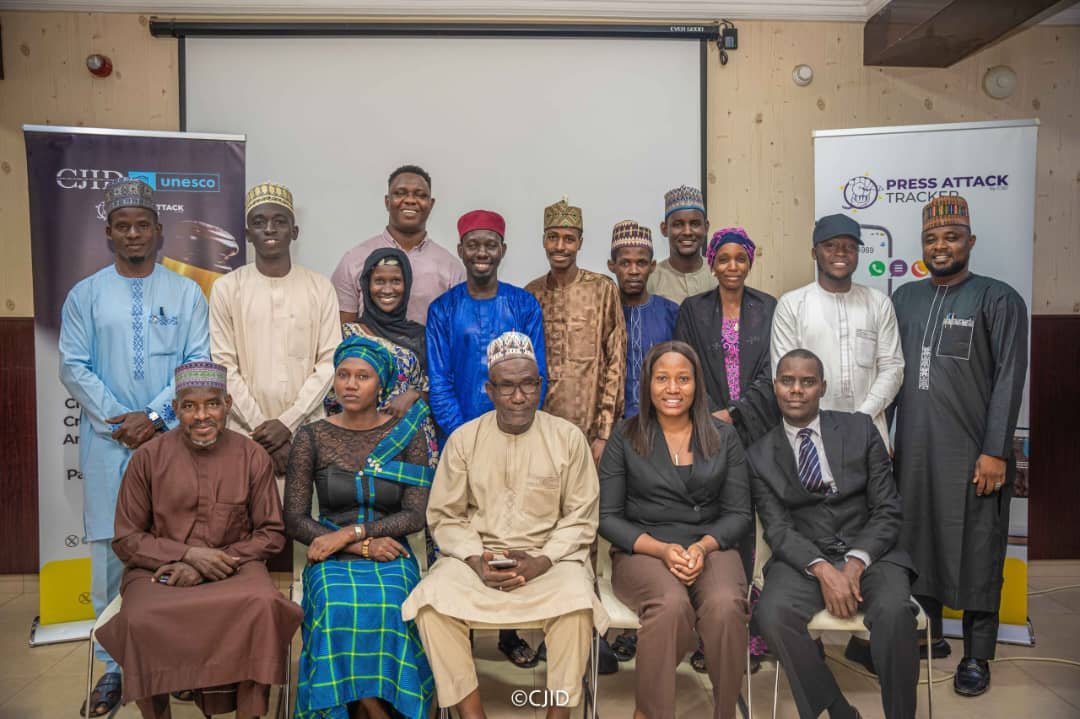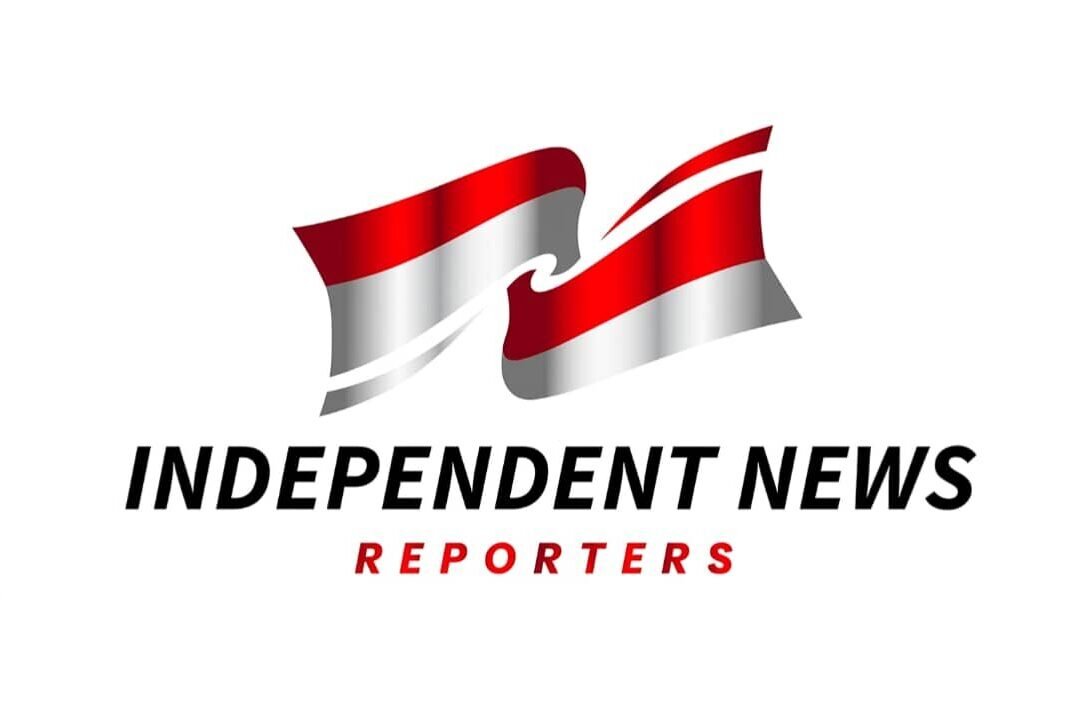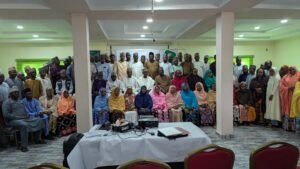
CJID Urges Journalists to embrace legal tools to safeguard press freedom
The Centre for Journalism Innovation and Development (CJID) has called on journalists to collaborate with legal professionals in order to counter the rising use of Strategic Lawsuits Against Public Participation (SLAPPs), which are often deployed to undermine their watchdog role in governance.
Mrs. Busola Ajibola, CJID’s Deputy Director made the call while declaring open a one-day interactive session organized by CJID for journalists in the Northeast, held in Yola, Adamawa.
According to her, such partnerships between journalists and legal experts are vital to overcoming the legal intimidation and harassment faced by the media, particularly in cases involving accountability reporting, a role enshrined in the Nigerian Constitution.
She emphasised that legal collaboration would help media professionals and organizations better navigate the judicial process when confronted with lawsuits intended to silence them.
Expressing concern over the psychological toll such lawsuits take on journalists, Mrs. Ajibola also urged media practitioners to engage in strategic storytelling as a tool to highlight and address the challenges they face in the course of their duties.
She noted that CJID’s mission in Yola was to provide newsroom managers and media executives with a platform to share ideas, develop strategies, and equip journalists with the knowledge needed to confront legal threats to press freedom in Nigeria.
Mrs. Ajibola encouraged participants to use the opportunity to improve their craft in the interest of society and the advancement of democratic values.
Speaking at the workshop, Mr. Idris Akinbajo, Managing Director of Premium Times, said one of the best ways to protect journalism from suppression is for journalists and media organizations to strictly adhere to legal and ethical standards.
He pointed out that some journalists inadvertently expose themselves to legal risks by neglecting basic regulatory requirements such as tax compliance and licensing obligations.
“A successful journalist and media industry operates within the bounds of the law. Obeying the rules gives us the moral authority to hold others accountable and protects us from being easily targeted by SLAPPs,” Akinbajo said.
In his presentation on Criminalisation of Journalism and Strategic Lawsuits Against Public Participation, Barrister Hakeem Abubakar Abba highlighted the impact of restrictive laws, including sections of the Terrorism Act, the Cybercrime Act, and the Nigerian Broadcasting Commission (NBC) Code, on objective journalism.
He called for urgent reforms to ease the practice of journalism in Nigeria, including amendments to laws that inhibit press freedom and the introduction of mechanisms to dismiss frivolous lawsuits at an early stage.
Mr. Adebayo Aare, Assistant Project Manager at CJID, urged media professionals to use the tool available at pressattack.africa. He emphasised that consistent reporting of press attacks is essential for ensuring accountability and mobilising support.
He also stressed the importance of strengthening judicial independence to better protect journalists.
The Chairman of the Nigeria Bar Association (NBA), Adamawa State Branch, Barrister Idi Ali, advised journalists to uphold ethical standards in the discharge of their duties.
He assured them of the NBA’s willingness to collaborate in ensuring that the media operates without undue legal interference.


